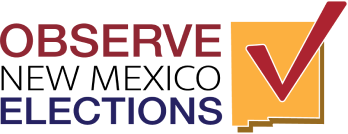Carter Center pilot projects followed international best practices
Elections are the cornerstones of functioning democracies. For decades, The Carter Center has been at the forefront of a global community of practice that supports nonpartisan election observation as a means of building public trust and confidence in well-administered elections. In 1989, former Presidents Jimmy Carter and Gerald Ford traveled to Panama to jointly lead the first international election observation mission ever funded by the National Endowment for Democracy, a nonprofit created under President Ronald Reagan’s administration to support free and fair elections around the world. Since that time, The Carter Center has observed 125 elections in 40 countries and three Native American nations. It has also worked with other international organizations to develop norms and standards for assessing the quality of elections around the world.
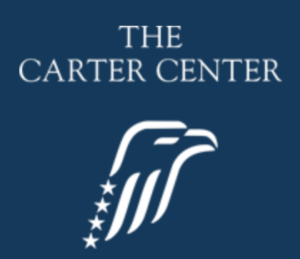
Parallel to efforts on international election observation, the global community of domestic election monitoring organizations also has expanded exponentially. In many countries, it is now common for a broad-based citizen movement to provide public commentary on the conduct of elections, focusing on the overall quality of the process. Credible citizen observer organizations assess the degree to which elections adhere to overarching principles and whether applicable laws and guidelines are consistently and correctly implemented.
As outlined in the Declaration of Global Principles for Nonpartisan Election Observation and Monitoring by Citizen Organizations, more than 245 citizen organizations in more than 90 countries have committed to observing elections based on key norms and standards. For example, they commit to: undertake their work with accuracy, impartiality, and professionalism; cooperate with election administrators; be transparent about their sources of funding and not accept funds that could constitute a conflict of interest; not obstruct the election processes, officials, candidates, or voters; use systematic observation techniques that incorporate long-term assessments of the election cycle to the greatest extent possible; and make findings publicly available in a complete, accurate, and timely manner.
In the U.S., election monitoring efforts are mostly implemented by partisan poll watchers, who are present to represent the candidates of their parties. In many states, the only individuals allowed into a polling location who are not voters or poll workers are partisan monitors or issue-affiliated monitors. While partisan poll watching efforts play an important role, they serve a political interest of tracking issues that could have an impact on their party or candidate. By contrast, nonpartisan citizen election observation focuses on assessing the quality of the democratic process as a whole. Nonpartisan observers care about transparency of the process and not the outcome. In this way, nonpartisan observation can help build confidence in election processes and results.
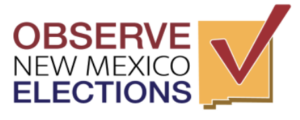
In 2024, The Carter Center provided funding and technical support to nonpartisan citizen-led observation efforts in Montana, New Mexico, and Fulton County, Georgia. The efforts in New Mexico and Montana spanned multiple counties and were carried out by in-state networks of local observers – the Montana Election Observation Initiative (MTEOI) and Observe New Mexico Elections (ONME). They were both led by cross-partisan advisory boards of respected leaders in each state. The mission in Fulton County, Georgia was co-led by The Carter Center and the “Monitoring Team,” an independent group of election experts. In all three missions, observers signed a code of conduct and attended rigorous training on the processes to be observed.
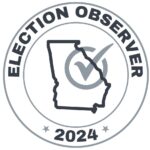
The MTEOI and ONME observation missions began preparing to observe in summer 2024, with initial efforts focused on assessing state election laws and processes and meeting local election officials. The teams gathered key information about the process, equipment, rules, and deadlines at each stage of the process to be observed, working in close coordination with local election officials.
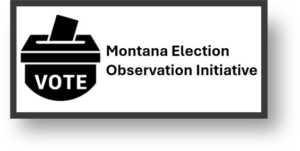
The Carter Center and its partners are grateful to election officials in both New Mexico and Montana who made sure that all stages of the election processes were accessible to observation. It is worth noting that citizen observation efforts like these are not designed to be ‘gotcha’ exercises aimed at critiquing election operations. Rather, the overarching goal of these efforts is to foster trust and transparency in well-run elections, regardless of the outcome. Observers closely tracked the key stages of the election process – such as logic and accuracy testing, poll worker training, ballot processing and tabulation, in-person voting, and post-election audits – and filled out detailed, structured reporting forms to record their findings in a systematic way.
The observation efforts found that the elections in Montana, New Mexico, and Fulton County, Georgia were generally well-run. Voters had open access to the polls, and critical processes were well-conducted overall. The final reports from each mission also highlight a few areas where elections processes could be improved.
Building on the success of these independent observation missions, The Carter Center intends to expand its program in future federal election cycles. Efforts are underway to determine which states are well-suited for possible nonpartisan election observation. The Center hopes that election officials across the country will be interested to learn more about these efforts and is confident that, as these citizen-led efforts grow, so will trust in U.S. elections.
You can learn more about these efforts, including accessing final reports in the links below:
https://observenmelections.org/
https://www.cartercenter.org/peace/democracy/us-elections.html
Click here to read the full article, by By Rokey Suleman and Sarah Cooper from The Carter Center
